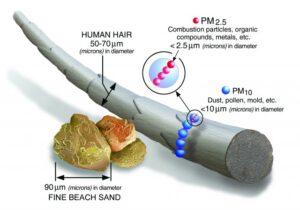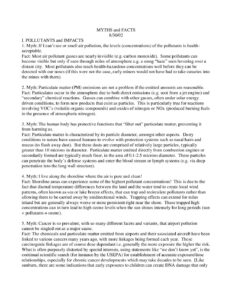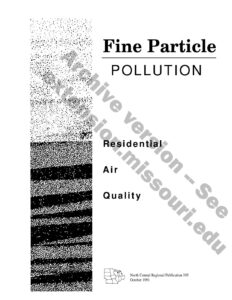Randy Krause October 2023 The Port of Seattle Fire Department continues on a five-year journey to find the safest, most efficient aircraft firefighting foam (AFFF) replacement and make Seattle-Tacoma International (SEA) one of the first U.S. airports to complete the steps for the transition after federal approval. In 2018, it was obvious the FAA would
The secret dispute behind cleaning Seattle’s only river
By Lulu Ramadan Seattle Times staff reporter This article was produced for ProPublica’s Local Reporting Network and The Seattle Times, with support from the Investigative Journalism Fund. Sign up for Seattle Times newsletters and alerts and ProPublica’s Dispatches to get stories like this one as soon as they are published. Times Watchdog stories dig deep to hold power accountable, right wrongs and
Beautiful Sunsets vs. Particulate Matter
Size comparison of PM2.5 and PM10

Are Legally Acceptable Levels of Pollution Harming Children’s Brain Development?
Between 1955 and 1970, the United States passed five laws to monitor and regulate the country’s air pollution. Each act built upon the last and, in 1970, Congress passed the Clean Air Act, which established guidelines for “safe” levels of ambient air pollution, some of which are still used today. But a new study suggests those standards
Study shows traffic-related air pollution in Irvine weakens brain function
Anna Aldrich, University of California, Irvine The brains of wild type (WT) and Alzheimer’s (APP) mouse models were analyzed after exposure to purified air (Con) and ultrafine particulate matter (PM) for the presence of astrocyte cells. These were visualized by staining them green (left column), with potentially harmful and activated astrocytes appearing in red (middle
myths

Residential Fine particle pollution University of Missouri ncr393-1991

American Lung Association: State of the Air (King County, Washington)
California becomes the first state to adopt emission rules for trains
April 27, 2023 SACRAMENTO, Calif. — California approved Thursday a first-in-the-nation, ambitious rule limiting rail pollution to aggressively cut greenhouse gas emissions in the state’s latest move to establish itself as a global leader in the fight against climate change. The rule will ban locomotive engines more than 23 years old by 2030 and increase
